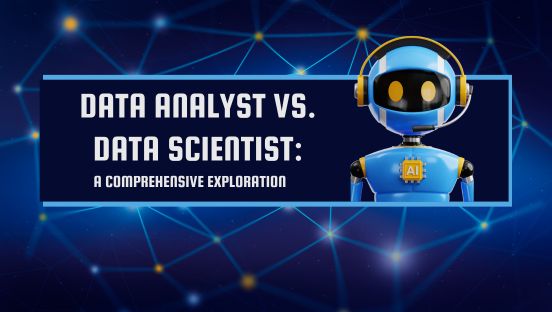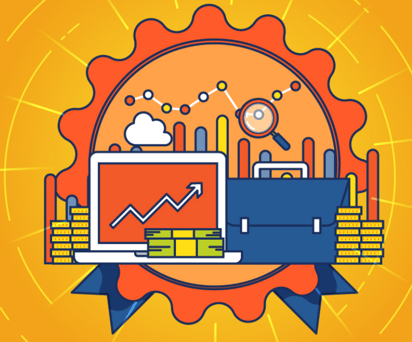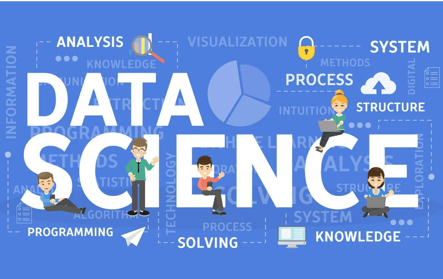
- Data professions in a data-driven world
- Clearing the lines between data analyst and data scientist
- Nuances, skills, responsibilities, and job outlook compared
- Make an informed career choice
This blog is a summary of an article originally published by Le Wagon on 25 August 2023. Here's the link to the article.
What is Data Analysis?
Data analysis involves examining and interpreting data to extract insights for data-driven business decisions. Analysts use visualisation tools and basic statistics to identify patterns and inform strategic choices.
Data analysts rely on statistical analysis and tools such as Power BI for data visualisation. They aim to offer actionable insights from raw data, supporting daily operations and business growth. Senior data analysts often earn higher salaries based on experience.
What is Data Science?
At its core, data science encompasses a broad range of techniques for data handling, analysis, and visualisation, making it an advanced form of data analysis.

Data scientists work on developing intricate machine learning models, employing neural networks for forecasting business performance, and applying artificial intelligence for customer behavior analysis.
In addition to technical proficiency, data scientists need strong communication skills, often holding advanced degrees in quantitative or data-related fields. This specialisation typically results in higher salaries compared to data analyst roles.
Key Differences Between Data Analysts and Data Scientists
Aspect |
Data Analyst |
Data Scientist |
| Educational Backgrounds | Often have online or self-taught basic education. | Typically hold advanced degrees in deeper data techniques. |
| Skill Set | Excel in analytical skills and data visualisation. | Specialise in predictive modeling and advanced machine learning. |
| Salary | Generally earn a lower median salary. | Command a higher median salary due to complex expertise. |
| Responsibilities | Focus on past performance reports and insights. | Prioritise predictive modeling and forward-looking outcomes. |
• Educational Backgrounds: Data analysts may have a foundational understanding from online courses or self-study, while data scientists typically possess advanced degrees with a focus on deep statistical analysis and advanced data techniques.
• Skill Set: Analysts use analytical skills and visualisation tools for insights, whereas data scientists work with predictive models, fine-tune parameters, and create new machine-learning models.
• Salary: Data scientists often command higher salaries, given their expertise in complex SQL queries and long-term solution development, as per job postings.
• Responsibilities: Analysts concentrate on generating reports and past performance analysis, while data scientists focus on creating predictive models and implementing advanced machine learning for tangible business outcomes.
Which Career Path is Right for You?
When choosing between a career in data analysis and a career in data science, consider the following:
A) Educational Investment: Choosing between data analysis and data science often hinges on your educational goals. Data science typically requires extensive formal education, including postgraduate degrees, to grasp advanced algorithms, statistical models, and machine learning techniques. Data analysis emphasises mastering specific tools and techniques, making it a fit for those seeking a shorter educational path focused on practical knowledge.
B) Career Goals: Your career trajectory plays a vital role in your decision. Data scientists delve into research, pioneering new data techniques, and developing innovative solutions. Their work is experimental, laying the groundwork for fresh insights. Experienced data analysts may transition to roles like business analyst or business analytics lead, bridging the gap between data and business strategies.
C) Skill Set: Your inherent skills matter. If you excel at critical thinking, detail orientation, and pattern recognition, a data analyst role suits you. These professionals ensure data accuracy and extract insights from extensive datasets. Conversely, if you're passionate about predictive models, advanced algorithms, and machine learning, a data scientist role is your calling. It demands creativity, technical prowess, and an unquenchable curiosity about data's potential.
Conclusion
Deciding between a data analyst and a data scientist role depends on your interests, educational preferences, and career goals. Both roles play crucial roles in the modern business landscape, facilitating informed, data-driven decisions. Whether you gravitate toward the structured domain of data analysis or the exploratory world of data science, a promising career path awaits.



